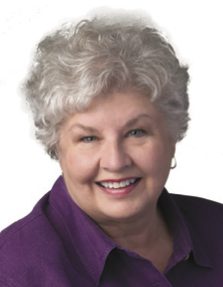
27 Aug 2017 Our words reflect ourselves
by Vivian Lawson Hogue
As an early reader, I found words exciting. I recall thinking that they seemed almost musical, or at least rhythmic. I found later that the words that I thought sounded exactly like the action or sound they make had a name – “onomatopoeia.” How many times did my mother say “hush” with the “sh-sh” at the end to either lull me to sleep or to get me to stop talking?
There was a delay in the latter need as I didn’t begin to talk until I was 3.
But then there’s “BANG!” and “ratchet,” “sizzle,” “hiccup,” “rumble,” “clip-clop” and “splat.” Some have extra effect with “slurp” and “ooze.” As words evolve, or should I say devolve, they lose their appeal to the senses. Some wonderfully expressive words fall into disuse. Why would anyone want to read Edgar Allen Poe without his words that purvey a somber, morbid atmosphere? What child or adult would enjoy Dr. Seuss books without their nonsensical but colorful and poetic words?
Many of a certain age will recall their first three grades in elementary school when they learned to print and form words on paper. While not taught so much now, we also began cursive writing in third grade. I found enough remembered value in it that when I taught calligraphy to high school students, I started them with cursive letters on first grade lined paper.
A baby usually begins with saying “ma-ma” then “da-da,” with M’s being easier to form than D’s. He or she then begins to imitate “ma-ma’s” and “da-da’s” words. It doesn’t stop there.
The brain is a recorder, camera and interpreter, and parents’ words and actions are recorded, good or bad. If they speak grammar incorrectly, the child will likely imitate them. If they do not read to him or her, the child will miss a good opportunity for bonding, memories and learning.
Whatever happened to word lists to take home for someone to say the words for students to spell? And then the tests that came afterward? (“Spell the word and use it in a sentence.”)
There may be a lucky few who have that advantage, but not enough. Meanwhile, today’s texting usage has reduced words to minimal letters, mostly consonants.
Words are very powerful. “Shut up!” doesn’t have the same effect as “Hush-sh-sh.” The wimpy, “Young lady, you mustn’t yell in a restaurant. Now, please, don’t yell!” doesn’t work as well as, “Young lady, come with me; we’re going outside.” Emphasis and intent are meaningful. And whatever happens outside, stays outside.
Now we are seeing an abuse of the power of words, particularly by what used to be the delicate sex. In my mother’s era, she read news stories of women marching for the right to vote. Although sometimes arrested or attacked by spectators, women in large U.S. cities marched in relative peace, speaking firmly and intelligently about their proposed right. Regardless of their frilly bonnets, long, heavy dresses and sensible shoes, they were able to make their point. The 19th amendment passed in 1920, rewarding their efforts.
Today, some women, young and older, march not so much to make beneficial changes for all, but to protest unclear causes. They curse, dress and behave shamelessly and scream or post words normally written on bathroom walls by unsavory people. It is a less than grown-up tantrum demanding attention. The adolescent girls they encourage to attend are watching behavior, attitudes and listening to words, and the protestors value that. They seem uncaring of the influence they have on innocent minds, regardless of possible violent circumstances especially dangerous for a child.
Their language and gestures contain the desired shock to those who maintain moral and social principles. Most print media replace letters in curse words with “#$%^&” to appeal to what sense of propriety we have left. Our children are learning crude language intended to change our culture – not for the better, not to show intelligence or regard for others, and not to promote desperately needed patriotism. French writer Victor Hugo said, “Strong and bitter words indicate a weak cause.”
It is impossible to imagine Conway’s pre-1970s women of influence in these circumstances. The Log Cabin Democrat often reported when early influential local women such as Mesdames Smith, Robins, Dunaway, Little and many other society ladies had teas with “delightful dainties served on crystal and china.”
They also included intellectual speakers and did community work. I knew many of these women who got things done with dignity, class, respect, intellect and patriotism. While some gatherings included discussion, I have assurance that there wasn’t a single “#$%^&” or pink crocheted protest cap in the house.
A native of Conway, Vivian Lawson Hogue graduated from the University of Central Arkansas with a degree in art education. A retired teacher, she worked in the Conway School District for 23 years. She is editor of the Faulkner County Historical Society’s semi-annual publication, “Faulkner Facts and Fiddlings.” She can be reached at [email protected].












